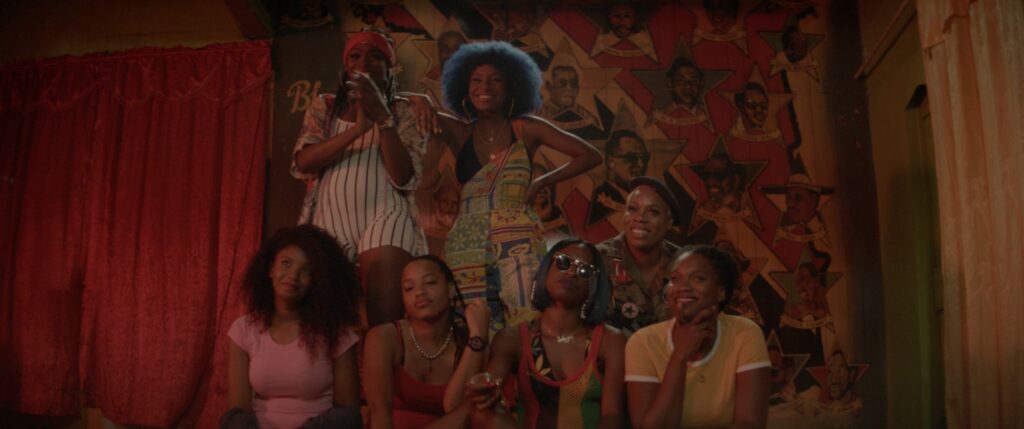Filmmaker Maya Cozier was raised in the Caribbean twin islands of Trinidad and Tobago. She gained years of experience working as a dancer/choreographer for music videos and television shows both on her own and as part of a champion hip hop crew that represented the island at the world hip hop championships. Her thesis film at the School of Visual Arts, NY, “Short Drop,” won the NYWIFT student award and has shown at over 20 film festivals worldwide, winning best Caribbean short film at Curacao film festival and best short film at Trinidad and Tobago Film Festival.
“She Paradise” is now playing in select theaters and available on VOD.
W&H: Describe the film for us in your own words.
MC: “She Paradise” is my love letter to all the women in my life who have continued to inspire me over the years. It’s my exploration of the beauty and complexity of sisterhood.
W&H: What drew you to this story?
MC: When I graduated from film school in NY, I was determined to return to Trinidad to make a film inspired by experiences and observations from my teenage years as a dancer and performer. I was a part of an all-girl dance group that competed on television every week on a local imitation of “America’s Best Dance Crew.” Those formative years of sisterhood inspire me to this day. I knew there was a gap and an absence of contemporary female-driven stories from the region and I knew I needed to tell this story.
W&H: What do you want people to think about after they watch the film?
MC: It’s difficult trying to find your voice and success in male-dominated environments, and while the women in the film exhibit power and agency, it’s nevertheless a difficult space to navigate. The film doesn’t shy away from the more complex examinations of women’s experiences in the region. The absence of a fairytale ending means that people can think about and discuss their interpretations of a raw and honest story.
W&H: What was the biggest challenge in making the film?
MC: There were many challenges making this film, but there was something rewarding about the small scale approach. It allowed unique freedom and creative control. I was able to take risks and make mistakes on my first feature, which presented new and exciting opportunities.
W&H: How did you get your film funded? Share some insights into how you got the film made.
MC: I made a short film first. The short was able to help gain momentum for the feature film. I then won a micro budget grant from the government of Trinidad to shoot the feature. I used all the funds to shoot, and then had to figure out how to get the film finished. Luckily, I met an executive producer who helped attract additional investment to get the film complete. The short was instrumental in gaining enthusiasm and interest around the film.
W&H: What inspired you to become a filmmaker?
MC: I didn’t set out to become a filmmaker at first. I took a documentary class when I was at art school where I made my first film, “Shan,” a film about my best friend. I did the sound, edited it, and directed it all by myself. It was a one-woman crew, but there was something very rewarding about using this tool to document my experience and tell intimate stories of women close to me. I fell in love with filmmaking and decided that it was what I wanted to do.
W&H: What’s the best advice you’ve received?
MC: The best advice I’ve received is to tell stores that you know and understand.
W&H: What advice do you have for other women directors?
MC: My advice would be to trust the unique value of your stories regardless of how seemingly personal or intimate they may seem.
W&H: The film industry has a long history of underrepresenting people of color on screen and behind the scenes and reinforcing — and creating — negative stereotypes. What actions do you think need to be taken to make it more inclusive?
MC: As someone who doesn’t really have the power to include, I can only urge those industry players who do to be conscious of their responsibility to include more diverse voices and stories.







